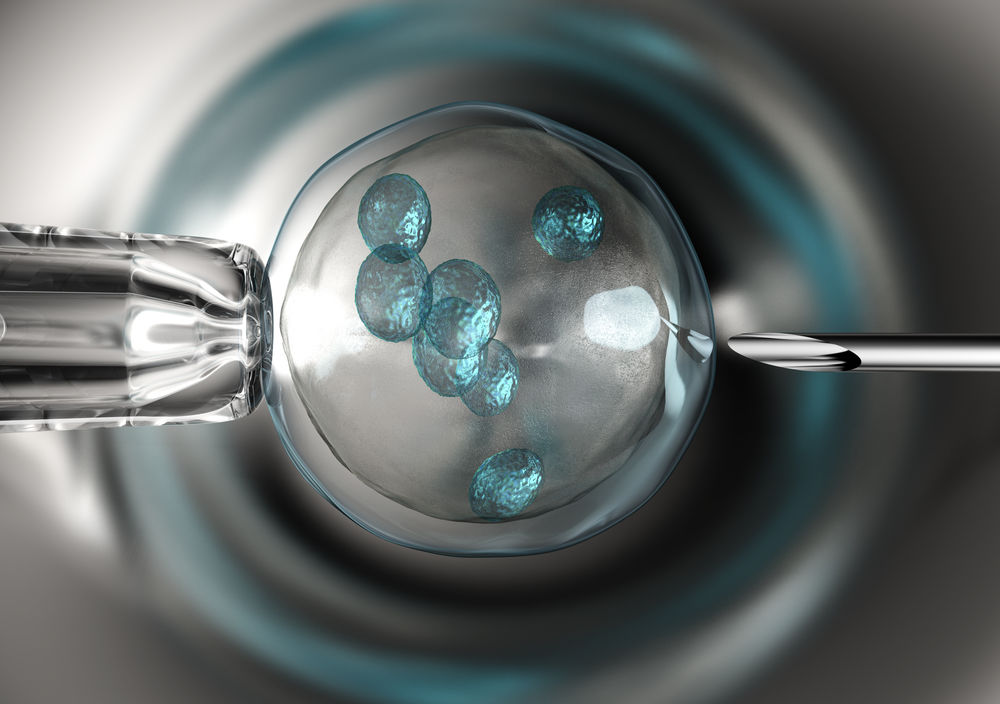With more and more parents facingrninfertility, assistedrnfertility has become big medical business. IVFrnhas become a commonplace, and expensive, treatment for infertility. Society hasrnaccepted this procedure without much thought, but the Catholic Churchrnunderstands that IVF presents serious moral problems that affect not only therninfertile couple, but also society at large.
The emotional appeal of IVF isrnconsiderable. Who could possibly be against assisting a couple that wants to bringrna new life into the world? The secular world has unquestioningly embraced IVFrnas a great advance in medical science; it views Church opposition as silly andrnmedieval, if not out-and-out cruel.
It’s up to lay Catholics to bear thernmessage of the Church to a world that increasingly needs it. Understanding thernreasons the Church opposes IVF brings a deeper understanding of the greatrndignity the Church ascribes to the human person, even at the earliest stages ofrnlife, something the world at large needs desperately.
Briefly, the Churchrnopposes IVF because:
Childrenrnare a gift and not a right. Much of the support of IVF startsrnwith the premise that anyone who wants children ought to be able to have them. ThernChurch views it differently. Children are gifts from God, to be accepted ifrnthey come, but the fact of marriage does not guarantee children will come. Viewingrnhaving children as a right rather than a gift creates a subtle shift inrnperspective. We acquire commodities; we accept gifts. That basic difference in understanding makesrna difference in how we view not only conception, but also each other. The “commodification”rnof people is a major problem of the modern age: treating people not asrnindividuals made in God’s image but as things to be manipulated.
Children—asrnpersons—have the right to be conceived in an act of love within marriage. It is for this reason the Church insists that the unitive and procreative aspectsrnof sex not be separated. God has established the manner in which children arernto be brought into the world. Donum Vitae statesrnthat it is “the right of every person to be conceived andrnto be born within marriage and from marriage.” Itrnis permissible to assist the natural process,rnbut not to circumvent it. There arernassisted fertility procedures that are acceptable under Church teaching (lowerrntubal ovum transfer, and possibly gamete intrafallopian transfer), but IVF isrnnot one of them.
IVF completely disrupts the naturalrnprocess and conception occurs, not within the woman’s body, but in the sterilernenvironment of a petri dish. The process also involves the artificialrnmanipulation of the woman’s body to increase the harvest of eggs and to preparernthe uterus for implantation, something even secularrnresearchers are beginning to question. It’srnnot the simple, easy process that many imagine it to be. The physical andrnemotional effects can be staggering and we are just beginning to understandrnthem.
Childrenrnhave a right to know who their parents are. IVFrnoften involves donation of eggs or sperm from a stranger to the marriage,rneffectively introducing a third party into the intimacy of the marriage. Thisrncan have profound psychological effects on the children as they grow,rnparticularly when they discover their conception involved payments and if theyrnhave no relationship with the donors.
IVFrnseparates the unitive and procreative aspects of sex. As such it is morally impermissible under Catholic thinking.
Inrngeneral, more embryos are created than are used. ThernChurch teaches that from the moment of conception, a fertilized egg, and laterrnan embryo, are entitled to the dignity of human personhood. The vast majorityrnof embryos created are never implanted or come to birth; most of them arerneither discarded or frozen for future use.
Somernimplanted embryos may be aborted in an effort to ensure a healthy, singlernpregnancy. Thus, IVF is often, if not usually,rnassociated with abortion, which the Church teaches is itself a grave evil.
Simplyrnput, IVF dehumanizes the human person. Embryosrnare selected for implantation depending on their “quality,’ quite apart fromrntheir value as a unique and precious person made in God’s image. The law treatsrnembryos—human persons—as commodities to be divided and awarded in divorcernsettlements, and grants the owner the right to destroy them. As technologyrndevelops, we face the prospect of childrenrnbeing created simply to be destroyed for their parts,rnto be used in medical treatments. This technology encourages a view of peoplernas things to be manipulated for the use of others and that view willrnnecessarily spill over to other aspects of society.
Thatrnsaid, the child brought into the world by IVF is still unique, precious, and unrepeatable,rnregardless of the way he was conceived. Childrenrnare to be welcomed and celebrated regardless of the circumstances of theirrnbirth. Decisions made cannot be undone, and simply criticizing the decision ofrnparents who undertook IVF without understanding the moral problems it presentsrndoes little to build up the Christian community.
It is not sufficient just to oppose IVF and therngrave moral evil that it is. It’s also critical for the people of God tornunderstand the great pain of infertility and to do what they can to share thernburden of those who face it on a daily basis. That requires continuingrnfriendship and personal relationship; burdens can only be shared when twornpeople are close enough for one to pass the load to the other. Only in that wayrnis it possible to assist those who suffer from infertility to find a way tornlive their lives, pain and all, in joy and in conformity with Church teachingrnon the dignity of the human person.
Interested in more? Subscribe to Angelus News to get daily articles sent to your inbox.
Barbara Golder had a 40-year career in medicine and law, including health care ethics. She is now the award-winning author of the ‘Lady Doc’ mystery series and serves as Director of Adult Faith Formation and Evangelization at the Basilica of Sts. Peter and Paul in Chattanooga, Tennessee. She blogs at ladydoclawyer.com.

